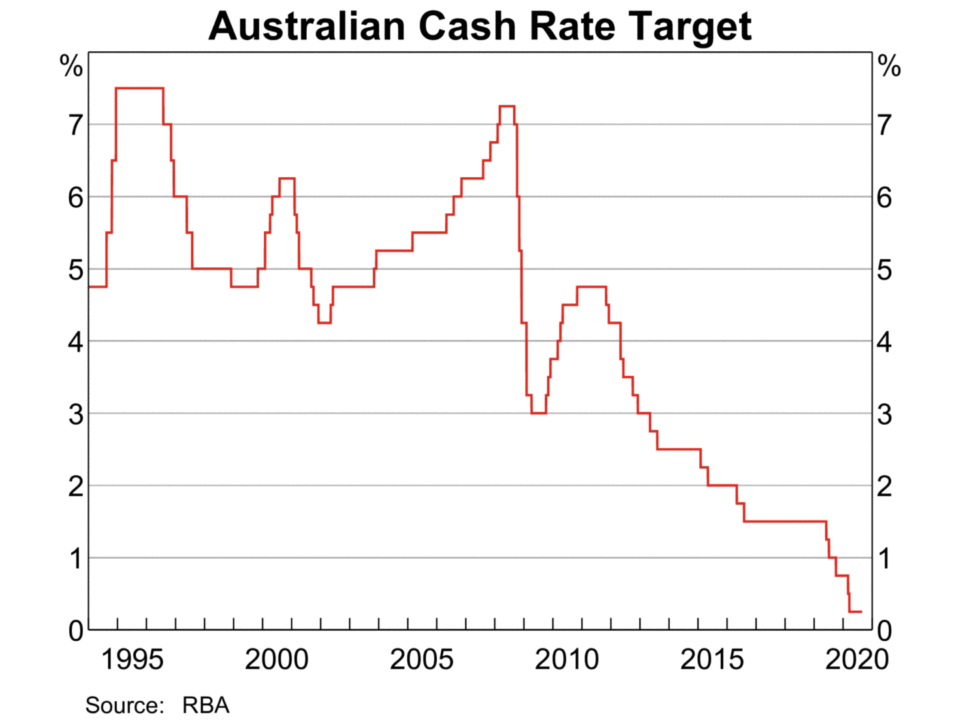RBA Cash Decision February 2021

Getting an Australian mortgage whilst living overseas during COVID
January 24, 2021Todays RBA meeting was the first for 2021. Tuesday the 2nd of February 2021 for their cash rate decision. The RBA board decided to keep the cash rate to a historical low of 0.10 points. The board also has set a 3-year cash rate and yield target of 10 basis points. Representing a hold on the record low RBA cash rate.
RBA on the Australian Economy
The outlook for the local and global economy has improved over recent months, with the development and roll-out of vaccines. This recovery is expected to be bumpy as worldwide economies recover.
There has been a decline in unemployment, now sitting at 6.6% (previously the budget papers expected a peak of 10% unemployment). GDP is expected to grow by 3.5% over both the 2021 and 2022 fiscal years, with the expectation that unemployment will trend down to 5.5% by the end of 2022.
Growth in Housing Market
Conditions in Sydney and Melbourne continue to be resilient. Markets in Queensland and Adelaide are experiencing housing booms, fueled by government stimulus and record low-interest rates. Recent clearance rates is showing a demand for property – though stock available is at 20-year lows.
Regional towns and cities are experiencing a demand for quality stock, in particular from sea change homeowners (citing the need for a lifestyle change, it will be interesting to see if this trend continues post lockdown).
The growth in housing credit has been driven by refinancing, with some demand for owner-occupiers within the FHB segment. The demand for credit to investors has continued to soften.
Since the last interest rate cut, we witnessed lenders pass on between 18 to 25 pts in a rate cut saving. Important to note this reduced the cost of variable loans. Customers on fixed loans will not experience the interest rate savings. We have also seen a trend of the bigger lenders not passing on the full savings to variable rates.
The lenders have since repriced new fixed-rate loans with record lows interest rates, to be in line with the RBA 3 year bond goal of 0.10%. Reducing the short term cost of funding. You can read more about the refinancing process or the process of purchasing a new property.
Lower mortgage rates will boost the aggregate household disposable income, which should feed into household spending and the saving rate. This has been seen in the growth in household savings, as Australians are paying down debt and saving in light of the recession. The RBA would like to see a lift in consumption, to support inflation growth.
The economy is being supported by the substantial, coordinated and unprecedented Under the program to purchase longer-dated bonds, the Bank will buy bonds issued by the Australian Government and by the states and territories, with an expected 80/20 split.
RBA February 2020 meeting on inflation
The inflation across the country is has softened, especially as household demand has fallen away. With the coronavirus, target inflation for 2021 has set a range between 1.25% and 1.5%
The RBA February board meeting made the decision to keep the cash rate to 10 points.
If you would like to read more from the RBA decision, click here. To read about last month’s decision, click here.
Jeremy Harper is the director of hfinance. hfinance is a mortgage brokering business, to speak with a Sydney Mortgage Broker, Gold Coast Mortgage Broker or an Australian expat mortgage broker. Contact by calling us on 1300 928 227 or email info@hfinance.com.au





